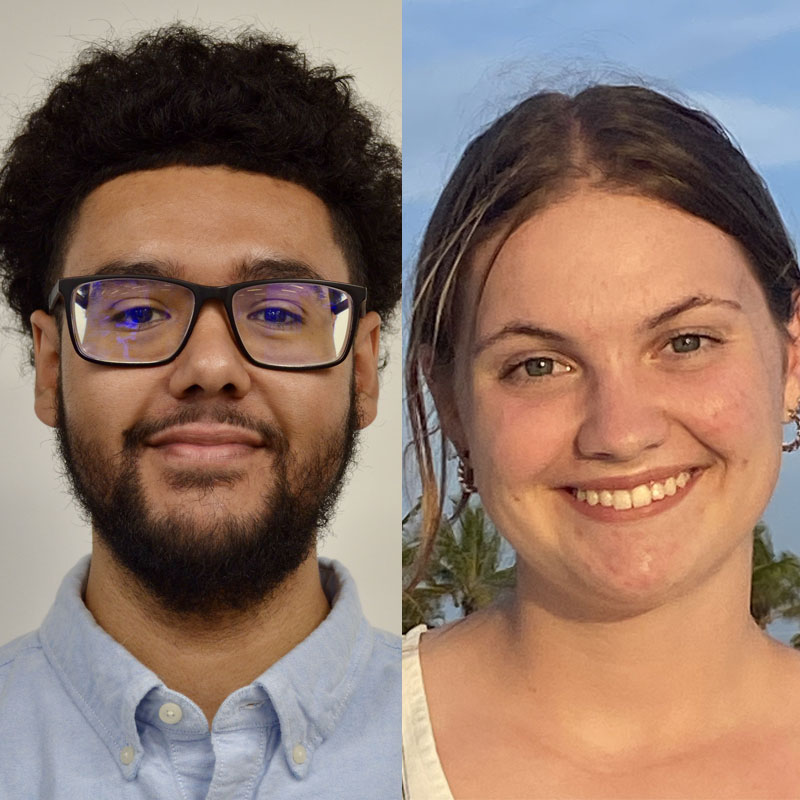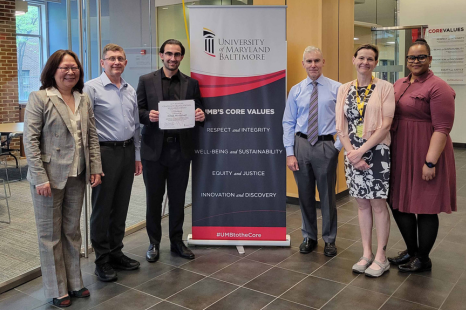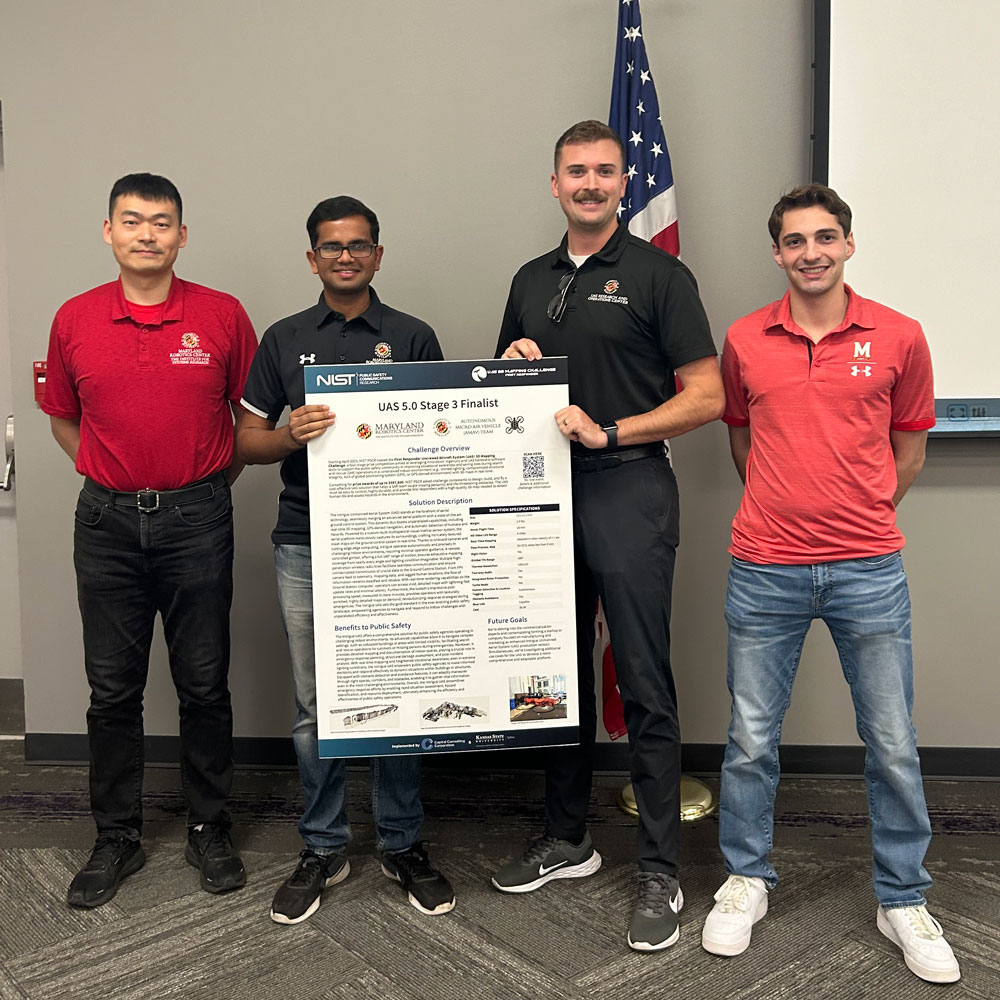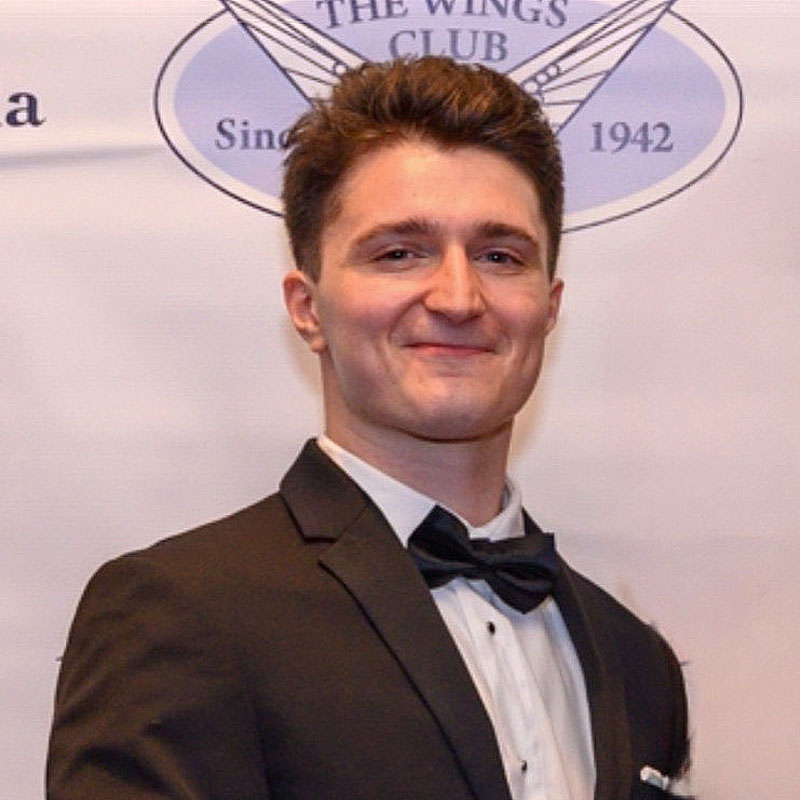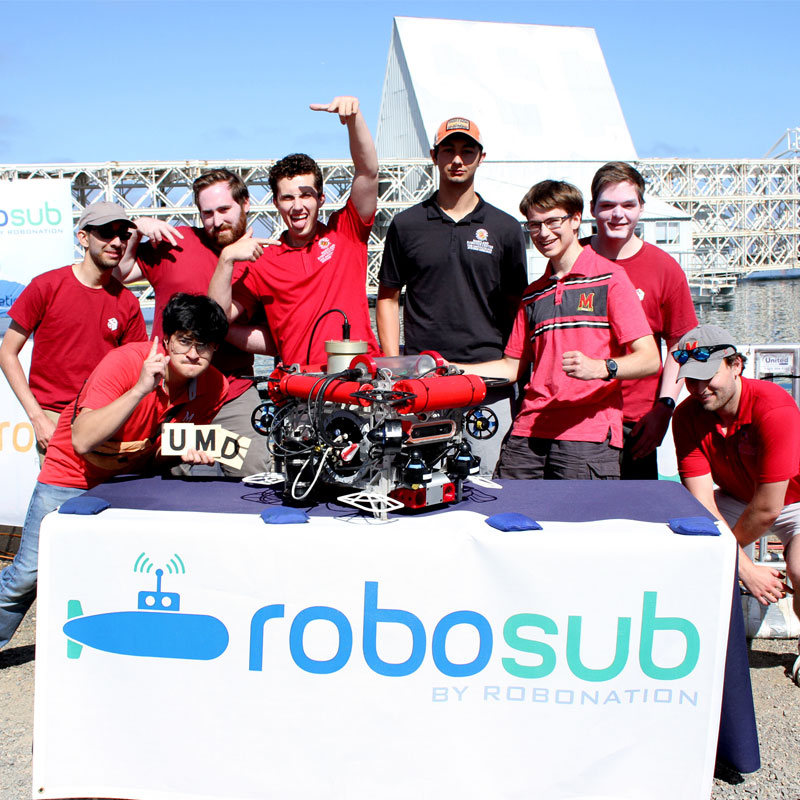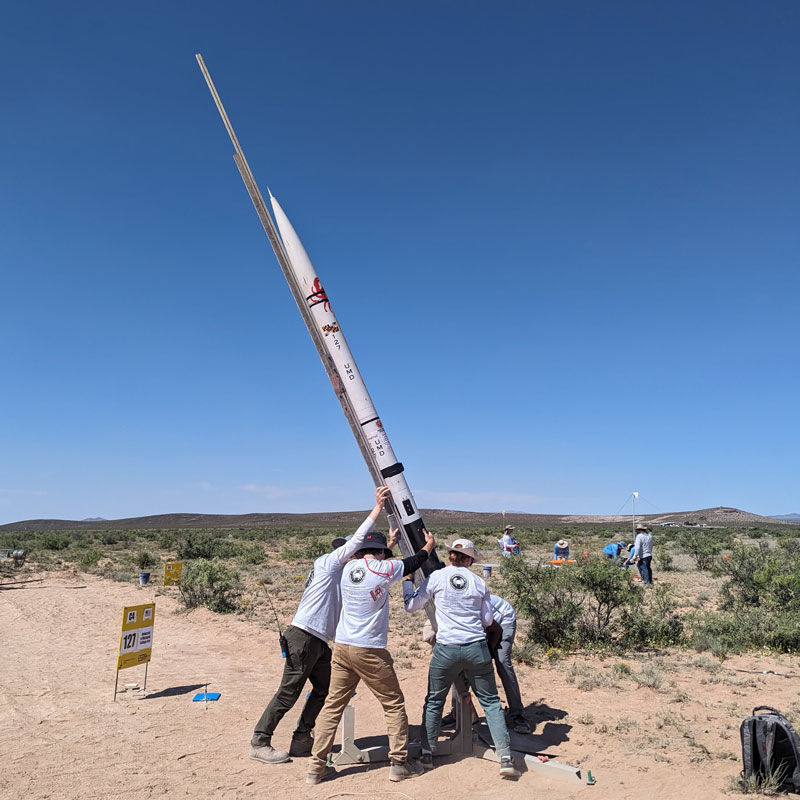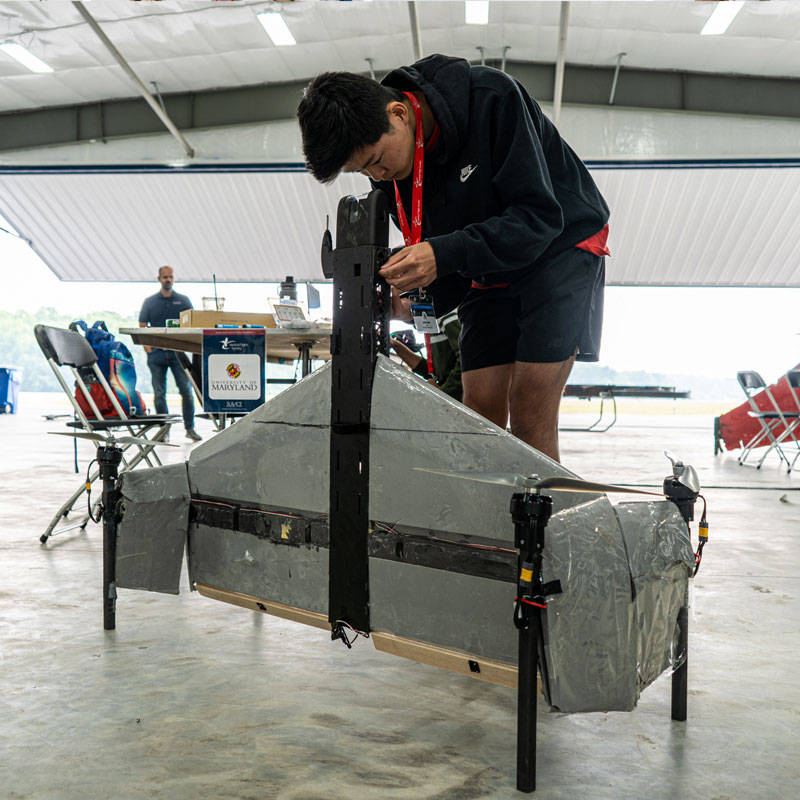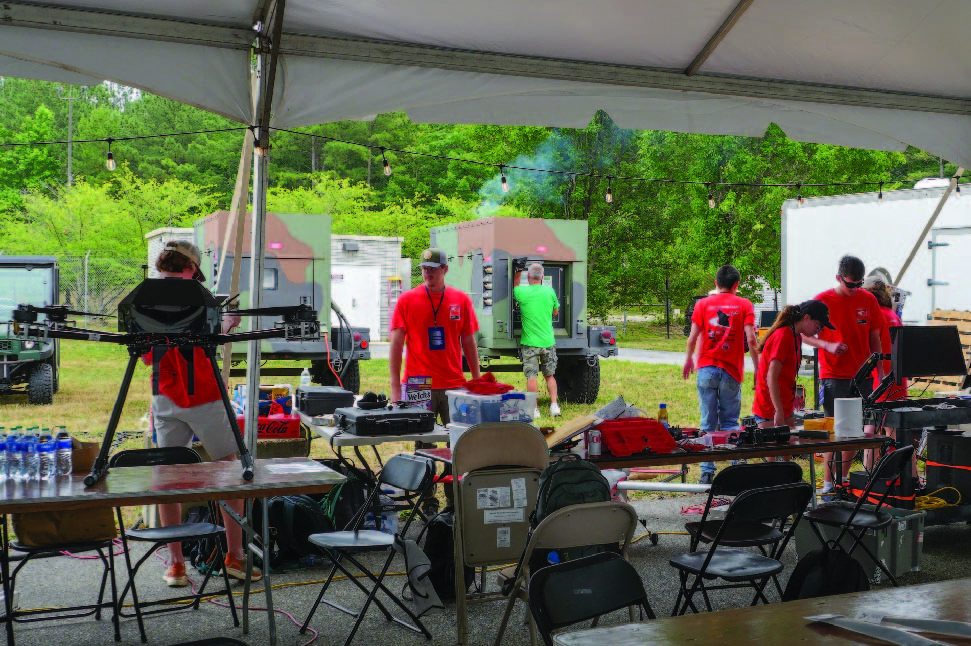News Story
UMD Team Wins Spaceport America Cup
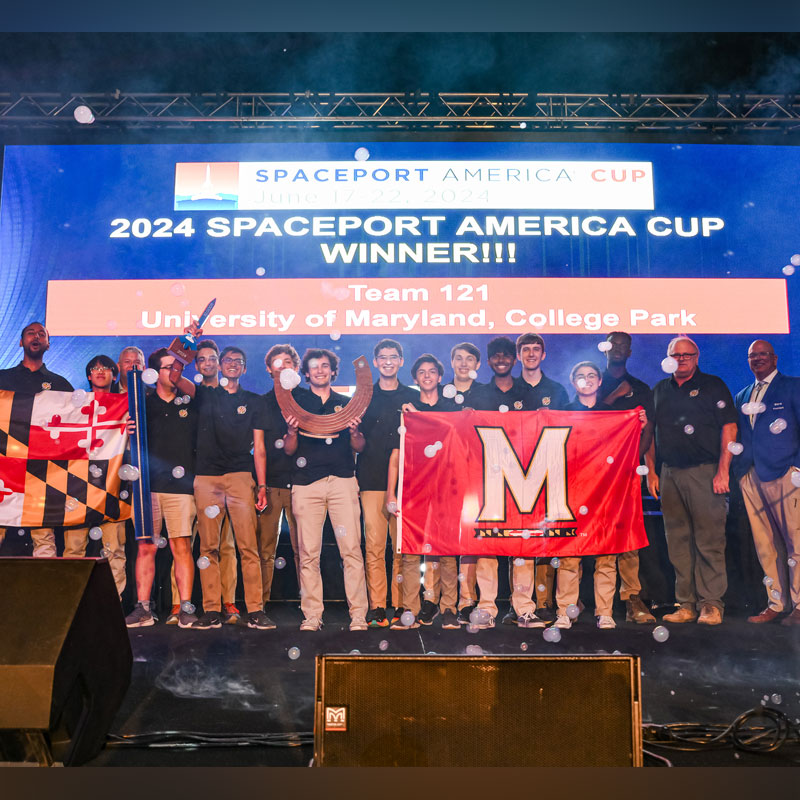
2024 Spaceport America Cup winning team. Photo credit: Jim Wilkerson
A University of Maryland student team soared to victory at the 2024 Spaceport America Cup held June 17 to 22 in Las Cruces, New Mexico. In just two short years, the Terrapin Rocket Team has risen from 30th place to competition victor, receiving the 2024 Genesis Cup Trophy. They also took first place in the 10K Student Researched and Developed (SRAD) category. This is only the fourth time Maryland competed for the Cup.
This year, the Spaceport America Cup—which is the world’s largest intercollegiate rocket engineering competition—drew 122 teams from around the world to test their rocketry and engineering skills, launching solid, liquid, and hybrid rockets to target altitudes of 10,000 and 30,000 feet.
Over the past year, a team of 75 Maryland engineering students worked tirelessly to refine their design, build, and test their nearly 13-foot competition winning rocket, Honu. Meaning turtle in Hawaiian, Honu featured a carbon fiber fin can with Terps Rocket’s signature fins, an airbrake, custom avionics, and payload.
The team has focused heavily on custom crafting as many of their rocket components as possible, says Sunjum Mehta, chief engineer and aerospace engineering junior, as well as focusing on slow, incremental improvements.
“We're building everything from the ground up completely custom,” added Mehta. “That's a really hard challenge, and not a lot of teams do it. But we're making progress year over year.”
Beyond the students’ design dedication, Mehta also credits the success of their recruiting and knowledge continuity efforts as contributing factors in the team’s success. They welcomed nearly 60 new members this past year, and dozens received their L1 certifications after completing a skill based certification program designed to ensure safety in hobby rocketry.
“We had a very strong team with some brilliant team members, and lots of really cool sub-teams that had a lot of technical ability behind them,” said Mehta. “We knew exactly what we needed to do, and we had help right there if we needed it. And that's a really important thing to have continuity on a rocketry team, especially when there's so much turnover every four years, three years.”
While the team encountered setbacks leading up to competition, they rallied, engineering solutions in real time, and were prepared to launch in the New Mexico desert.
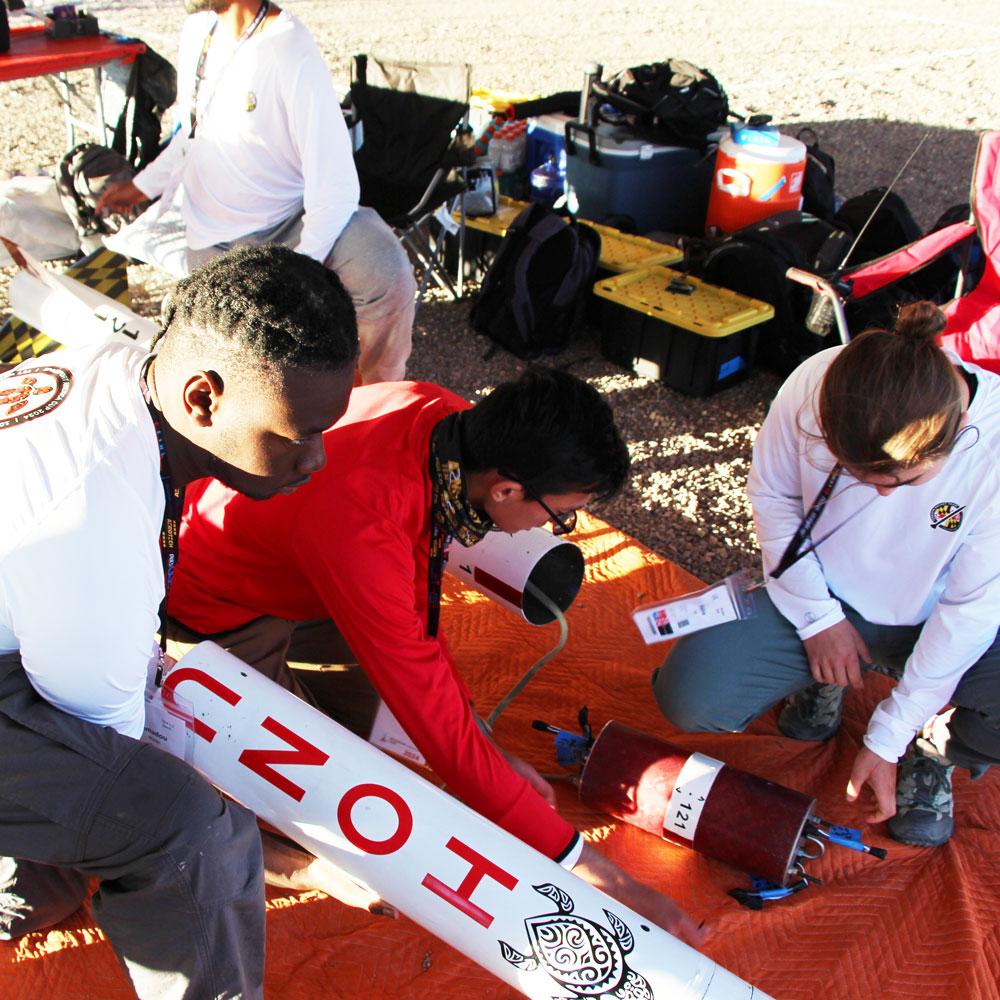 “We were a lot more organized this year,” said Sophie Jack, rising junior and co-lead on the airbrakes sub-team (pictured at far right with team members at competition). “Last year was definitely a big learning experience, but this year, everyone knew what they needed to do, and just did it, so overall, it was a lot smoother.”
“We were a lot more organized this year,” said Sophie Jack, rising junior and co-lead on the airbrakes sub-team (pictured at far right with team members at competition). “Last year was definitely a big learning experience, but this year, everyone knew what they needed to do, and just did it, so overall, it was a lot smoother.”
The team is savoring their victory, but they are already looking ahead to next year—with an eye towards moving into the 30K foot category.
“It’s an even bigger challenge,” said Mehta. “But we strongly believe in lots and lots of testing. We’ve gotten in tons of test flights over the years, and those tests help us make sure our systems work.”
Beyond the technical, moving into the 30K category also poses a logistical challenge since the closest approved launch location for testing 30K altitude rockets is in Kansas, but the team is building that travel into their planning process.
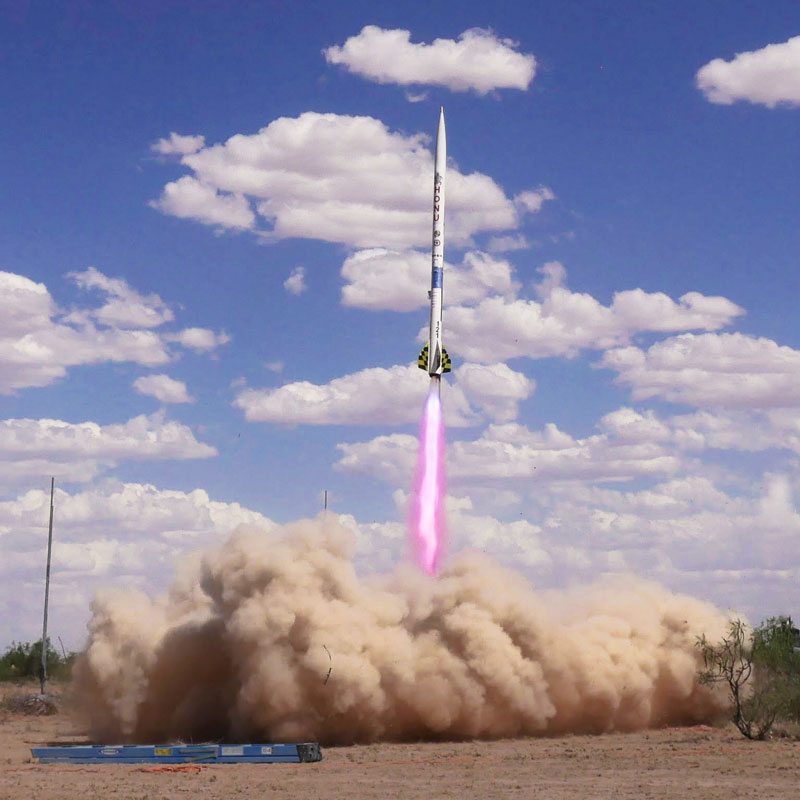 And, as the new school year approaches, they will also be looking for a few new team members.
And, as the new school year approaches, they will also be looking for a few new team members.
“More than 60 new members signed up last year, but we would also like to add more diverse talent to the team this coming year,” said Jack. “You don’t have to be an aerospace engineering major. There’s video challenges and other aspects of competition that could be interesting for business or marketing majors.”
The team would like to add a huge thank you to the Maryland Delaware Rocketry Association (MDRA), their mentor Dennis Kingsley, and their motor mentor, Scott Szympruch, with additional thanks to Bryce Liposky, Professor Chris Cadou, and Assistant Research Professor Michael Kio.
You can follow Terps Rockets on Instagram!
Media
The Terps Rocket Team discussed their win with WUSA9.
Published June 27, 2024

